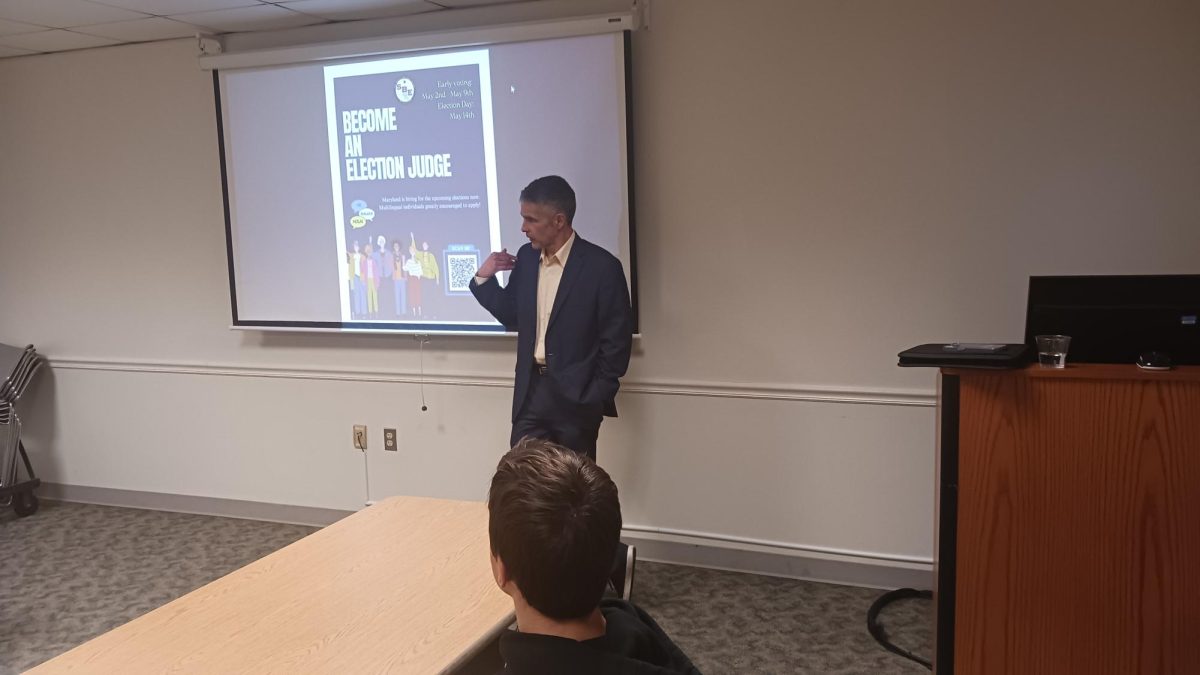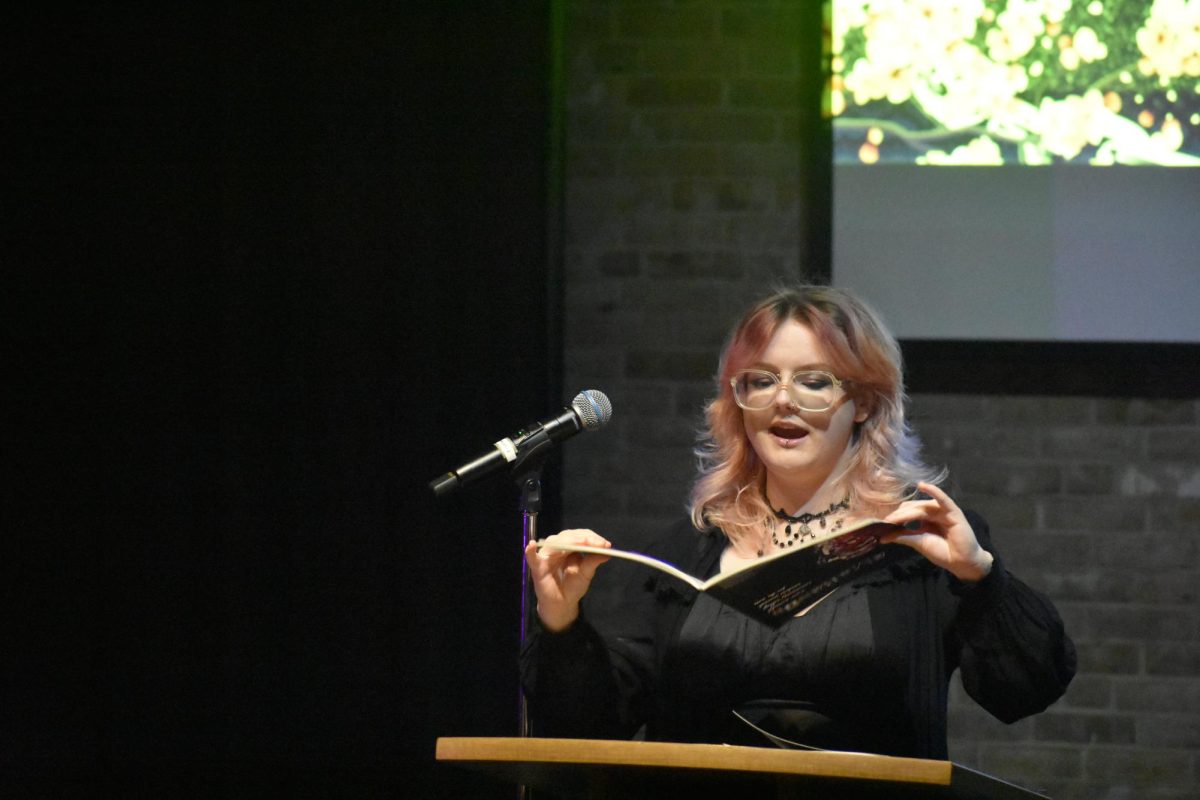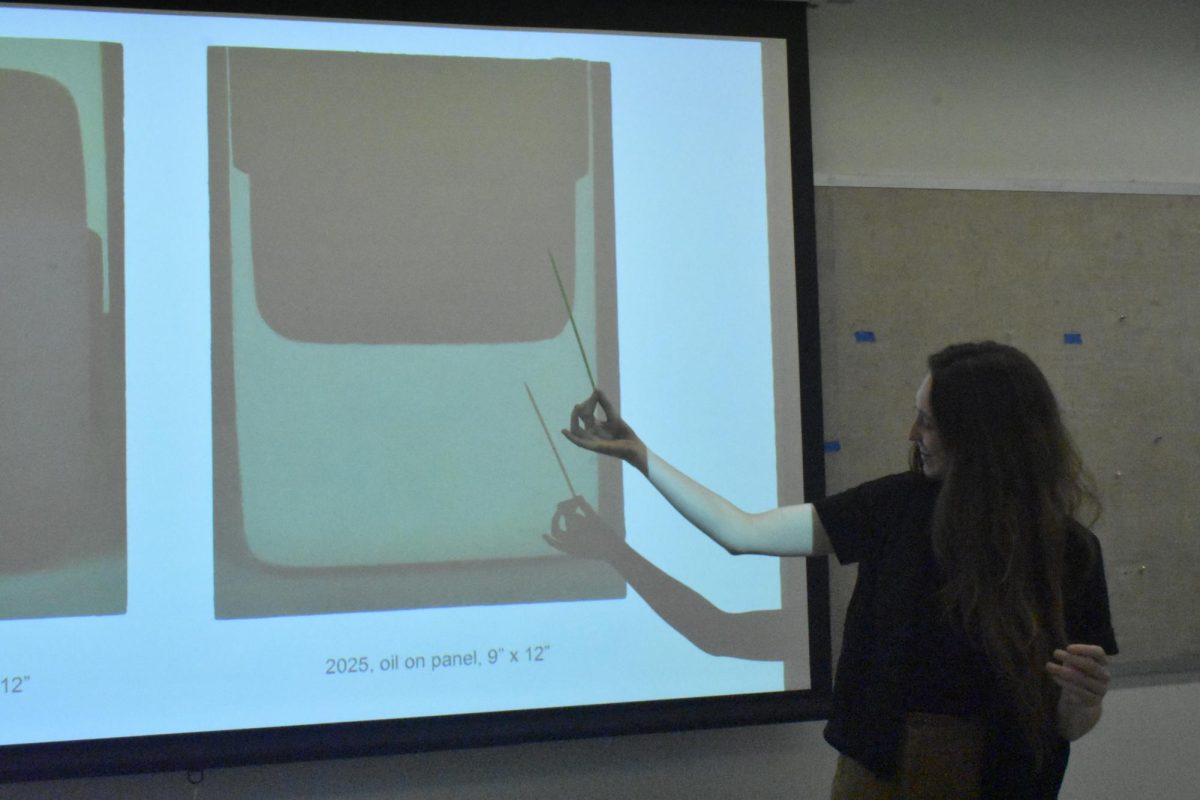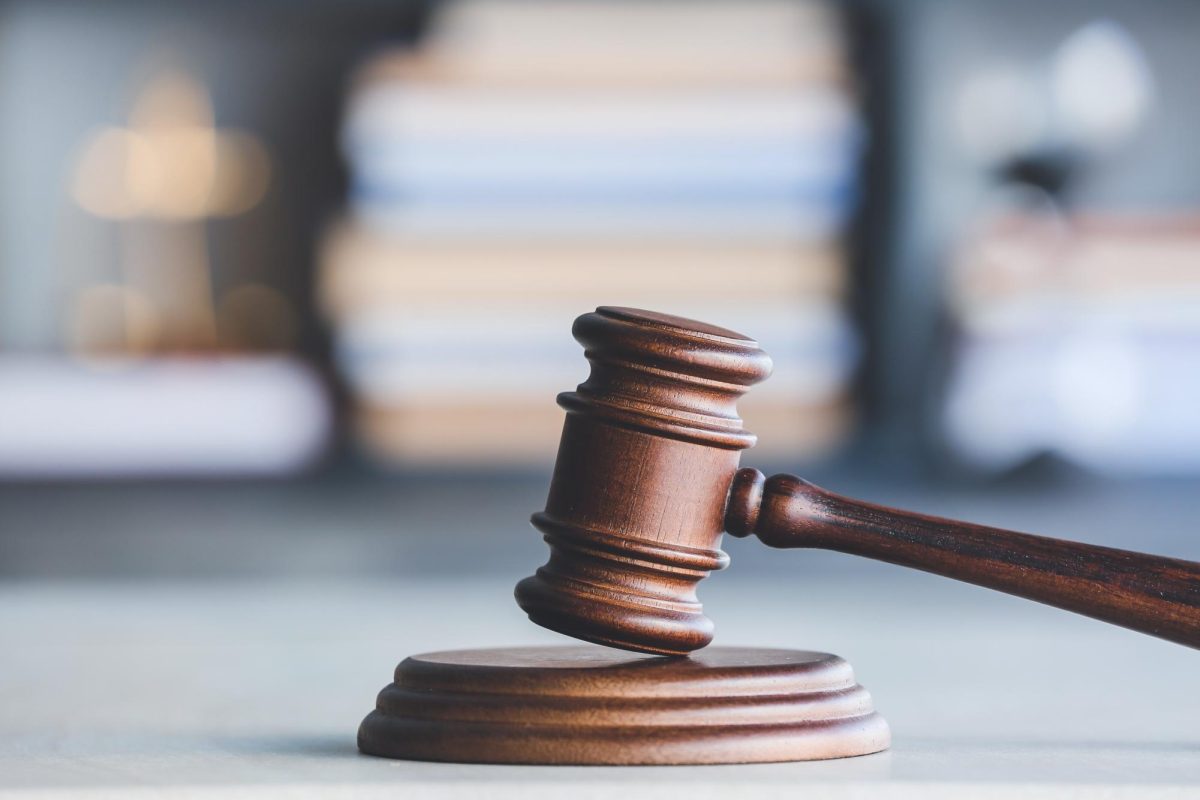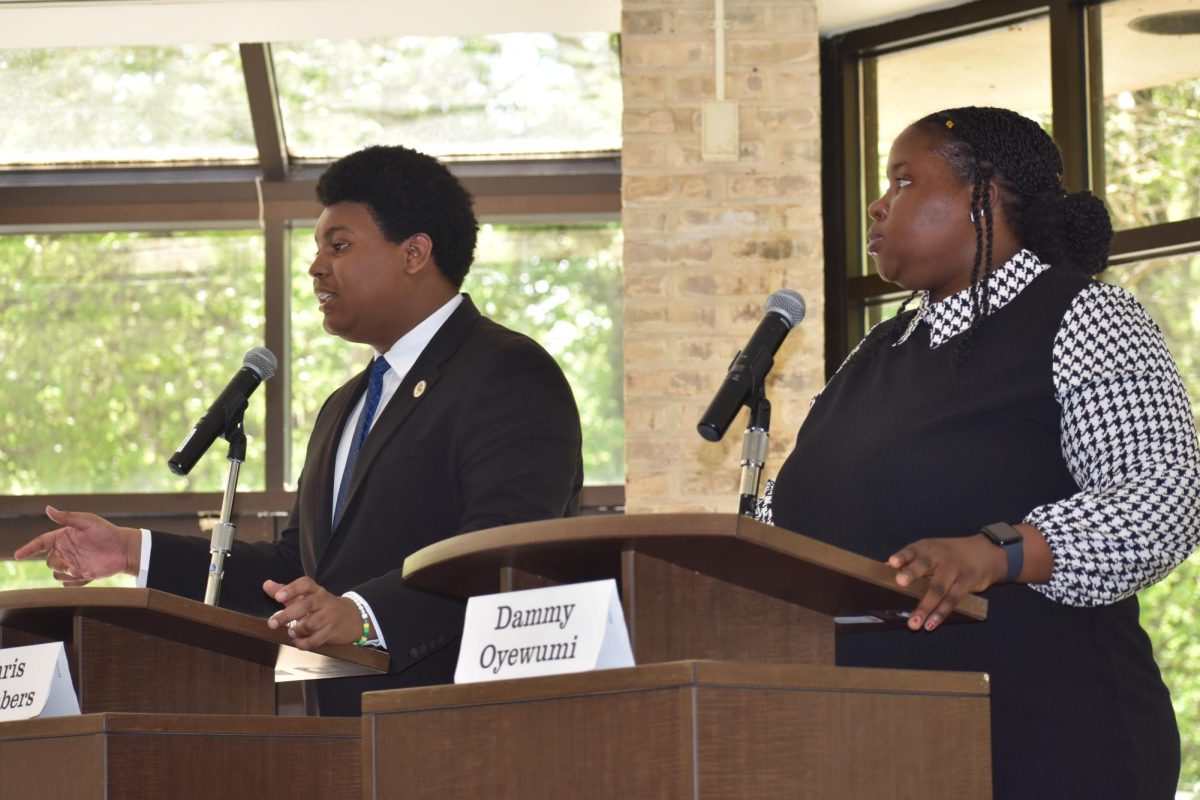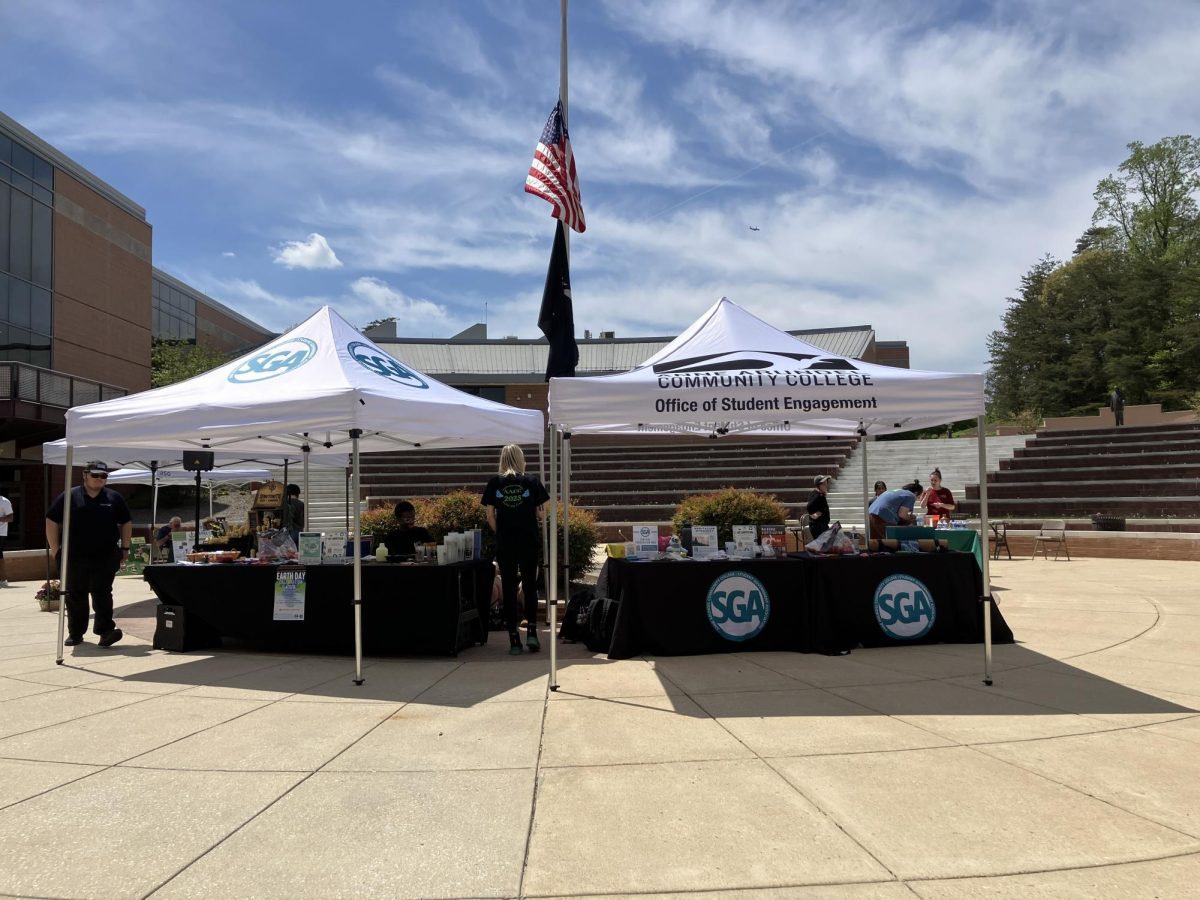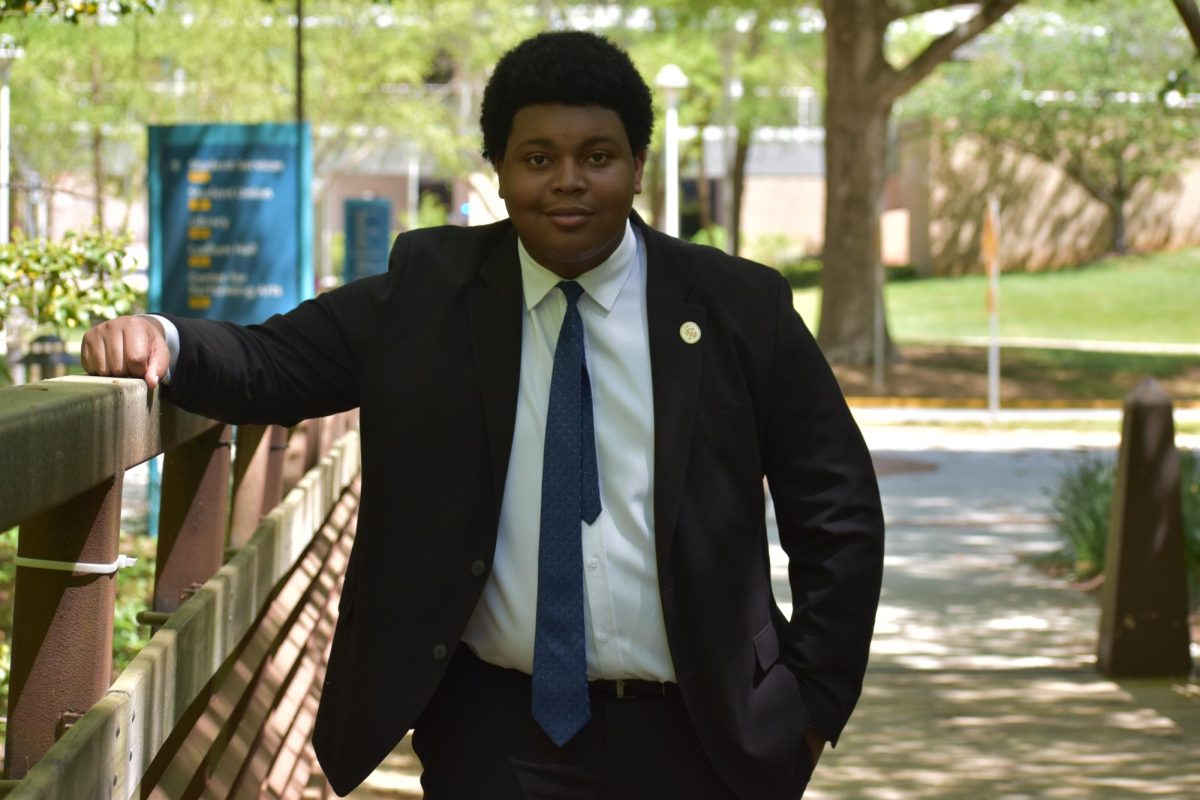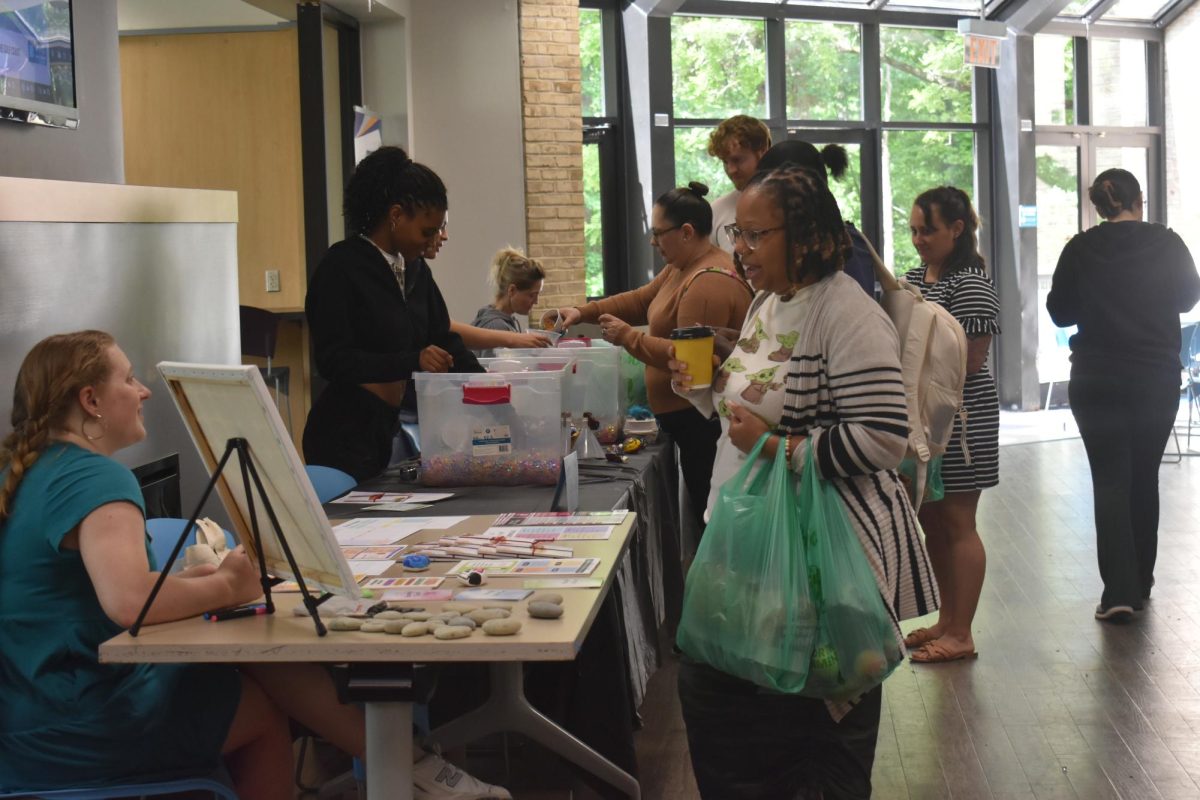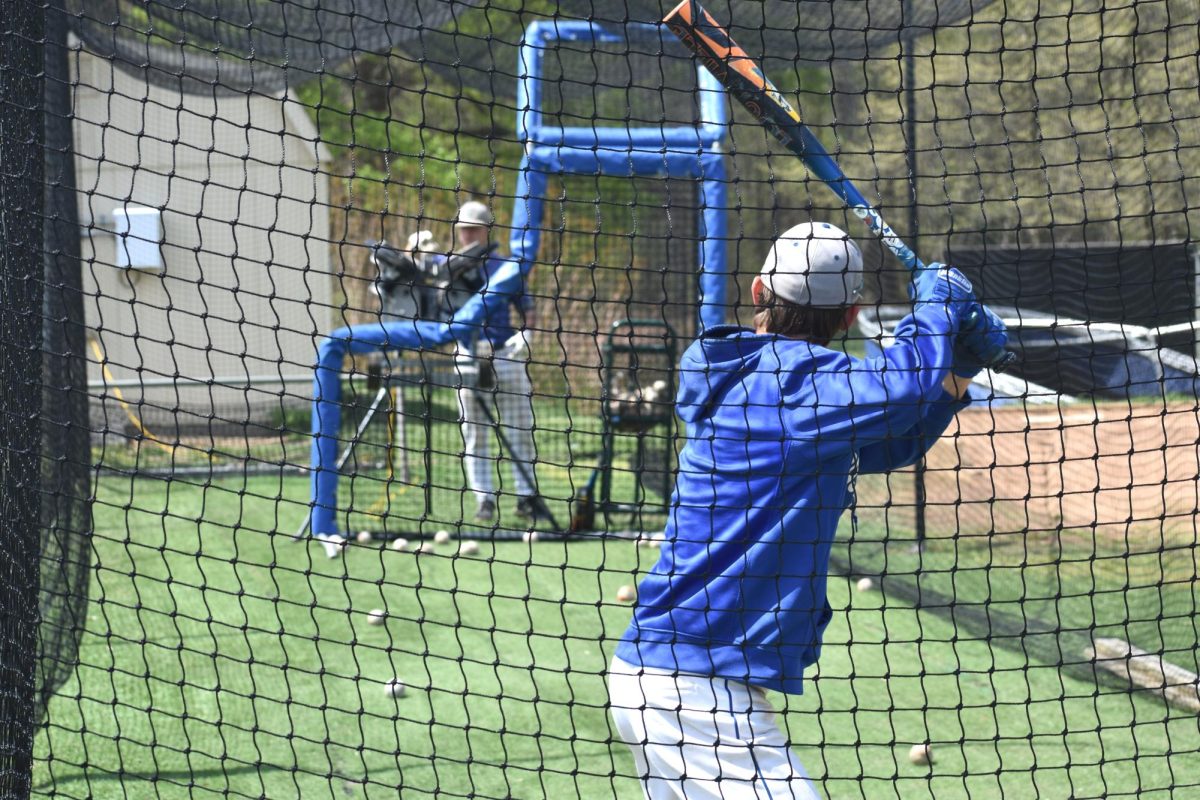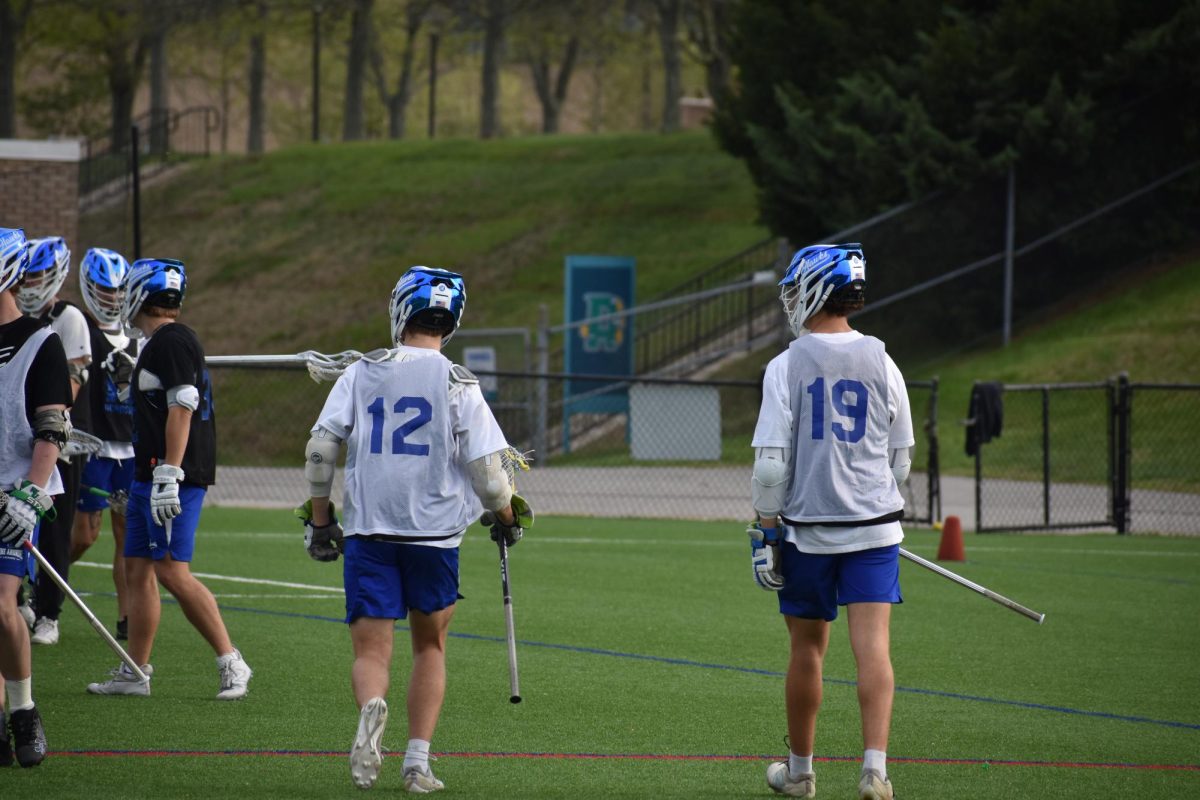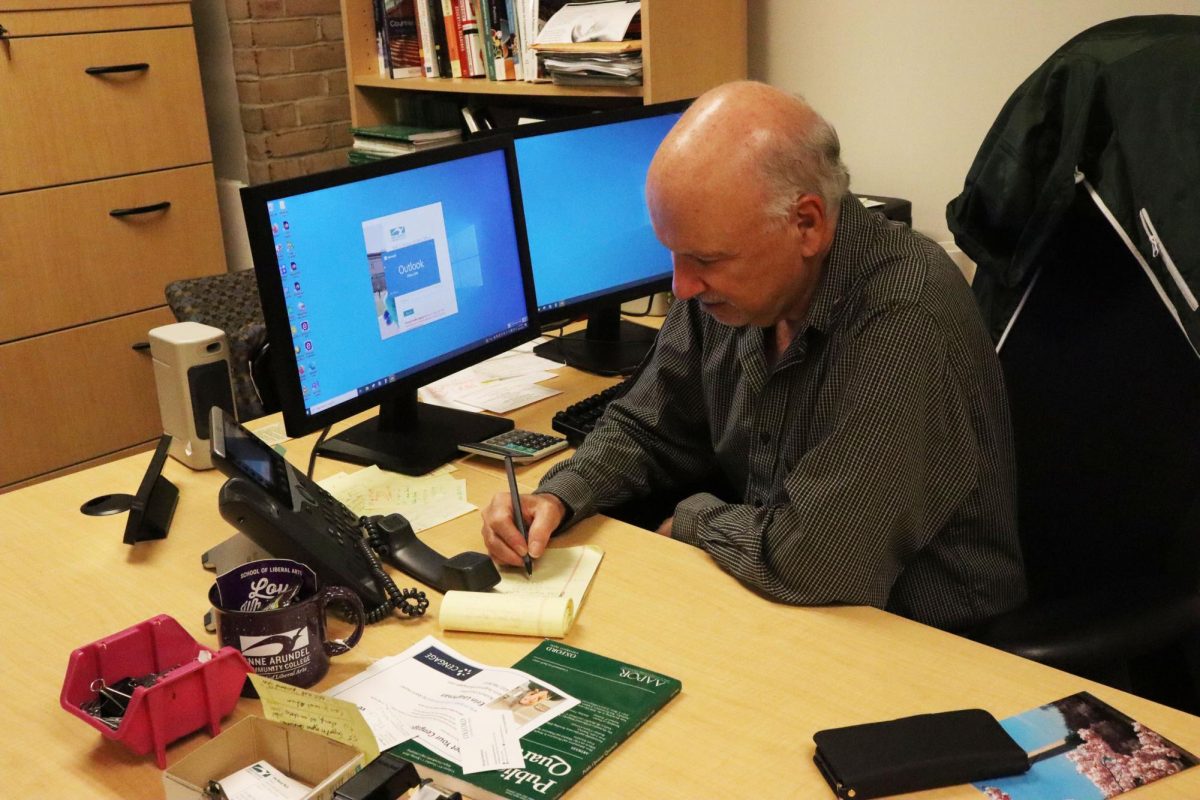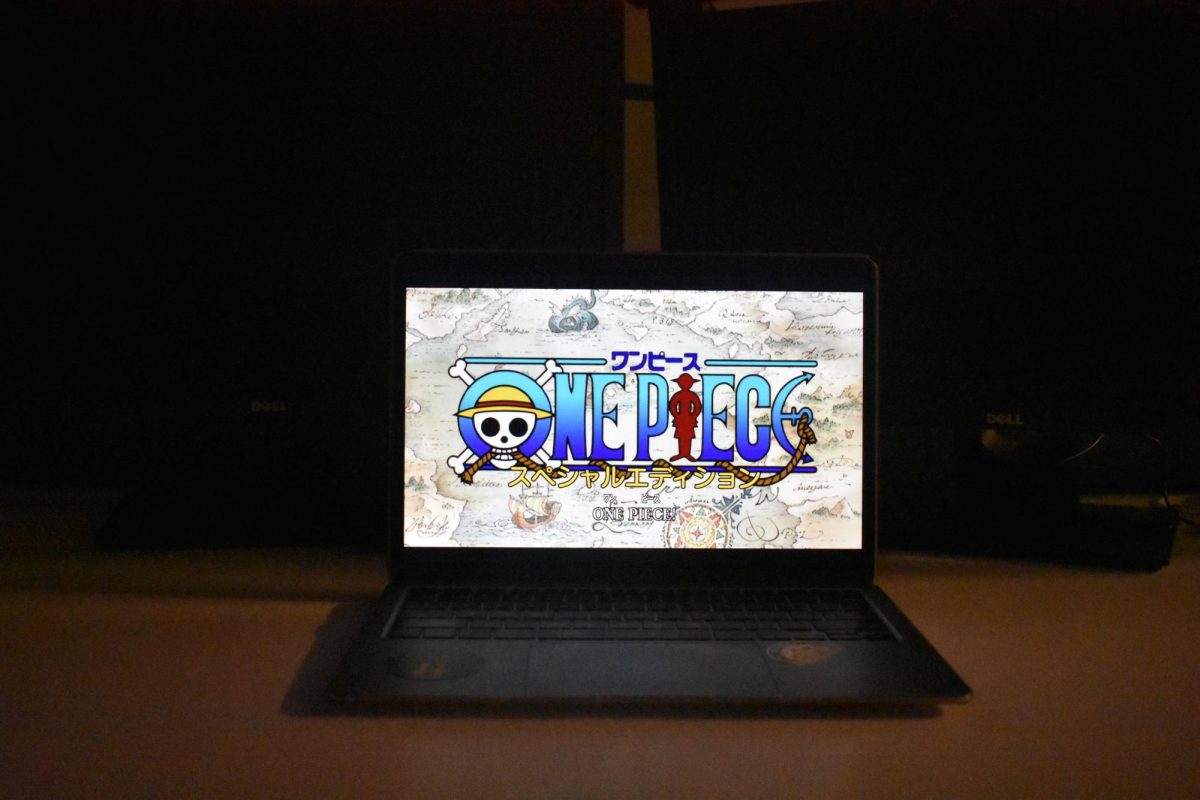Students and faculty discussed the state of voting in the United States and learned how to become an election judge at an event on Wednesday.
The Office of Student Engagement invited State Administrator of Elections Jared DeMarinis to teach students about the importance of voting and how to become an election judge in order to increase young political participation at the first Voter Education Lunch & Learn Series event.
“Make sure you go out and vote,” DeMarinis said. “It’s too important … the struggle was too long and too hard.”
This is the first of three Lunch & Learn Series events that will take place this semester, according to Amberdawn Cheatham, the Office of Student Engagement director.
“I think it’s important for students to be engaged in the voting process,” Cheatham said. “So we can kind of try to … [make sure] that students aren’t missing out on meals in order to do something else that they find important.”
Cheatham said it’s important to “bring some of these resources” to the campus so that students can have an easier time being “civically engaged.”
“I feel like because students are here most of their day,” Cheatham said. “I thought, ‘Why not bring [speakers] here on campus?’”
According to DeMarinis, younger voters “historically” have “lower than normal” electoral participation.
“College students … are vital to our democracy,” DeMarinis said. “It’s important to make sure that students understand why [they] need to vote.”
Students who are registered to vote can get paid $50 for training and $250 everyday that they work as an election judge. Returning judges–election judges that come back after two years–get paid $350 instead of $250 for their work, according to DeMarinis.
Cheatham said election judges help elections “remain honest.”
“I think it’s important to … have somebody who is trained and paid to ensure that our votes are actually being counted,” Cheatham said. “It’s important … that if I take it upon myself to be educated about an issue that my voice is actually going to be heard and heard in the correct way.”
DeMarinis agreed.
“When there is no trust in the system and [the] people believe that a person was illegitimately elected it breaks down their ability to govern,” DeMarinis said. “When you have … trust in the elections … and people, you know, believe [in] the results … then when we declare who the winner, right, that individual can then govern with confidence.”
Second-year mathematics student Ev Hansen said a lot of people don’t trust elections because they “don’t know what’s happening” in elections.
“People need to be able to trust what’s going on in their system … [and] they don’t really know what’s going on,” Hansen said. “Being in that process just helps bring everybody together.”
DeMarinis said elections “always need more people” to help.
“It is a ‘single point of failure’ type of [situation],” DeMarinis said. “We always need to recruit as many people as possible.”
Hansen agreed.
“We have a lack of election judges,” Hansen said. “[It] makes work harder for everybody.”



